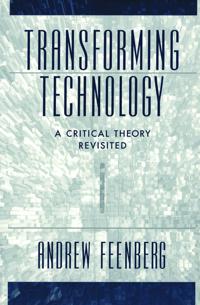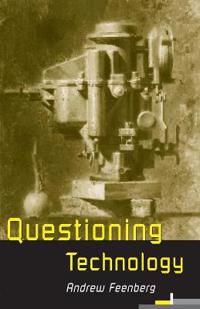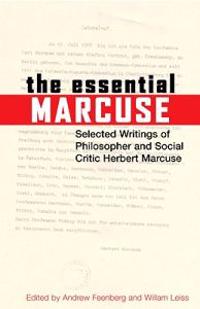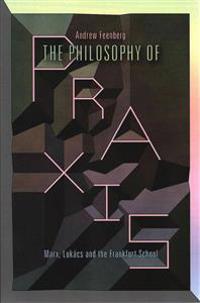Transforming Technology (Häftad)
avAndrew Feenberg
ISBN: 9780195146158 - UTGIVEN: 200201Thoroughly revised, this new edition of Critical Theory of Technology rethinks the relationships between technology, rationality, and democracy, arguing that the degradation of labor - as well as of many environmental, educational, and political systems - is rooted in the social values that preside [...]
Between Reason and Experience (Häftad)
avAndrew Feenberg
ISBN: 9780262514255 - UTGIVEN: 201005The technologies, markets, and administrations of today's knowledge society are in crisis. We face recurring disasters in every domain: climate change, energy shortages, economic meltdown. The system is broken, despite everything the technocrats claim to know about science, technology, and economics[...]
Questioning Technology (Pocket)
avAndrew Feenberg
ISBN: 9780415197557 - UTGIVEN: 1999-04In this extraordinary introduction to the study of the philosophy of technology, Andrew Feenberg argues that techonological design is central to the social and political structure of modern societies. Environmentalism, information technology, and medical advances testify to technology's crucial impo[...]
Alternative Modernity: The Technical Turn in Philosophy and Social Theory (Övrig)
avAndrew Feenberg
ISBN: 9780520089860 - UTGIVEN: 1995-10-27In this new collection of essays, Andrew Feenberg argues that conflicts over the design and organization of the technical systems that structure our society shape deep choices for the future. A pioneer in the philosophy of technology, Feenberg demonstrates the continuing vitality of the critical the[...]
Essential Marcuse: Selected Writings of Philosopher and Social Critic Herbert Marcuse (Häftad)
avHerbert Marcuse, Andrew Feenberg, William Leiss
ISBN: 9780807014332 - UTGIVEN: 200704"The Essential Marcuse" provides an overview of Herbert Marcuse's political and philosophical writing over four decades, with excerpts from his major books as well as essays from various academic journals. The most influential radical philosopher of the 1960s, Marcuse's writings are noteworthy for t[...]
The Philosophy of Praxis (Häftad)
avAndrew Feenberg
ISBN: 9781781681725 - UTGIVEN: 2014-07The early Marx called for the "realization of philosophy" through revolution. Revolution thus became a critical concept for Marxism, a view elaborated in the later praxis perspectives of Lukacs and the Frankfurt School. These thinkers argue that fundamental philosophical problems are, in reality, so[...]








